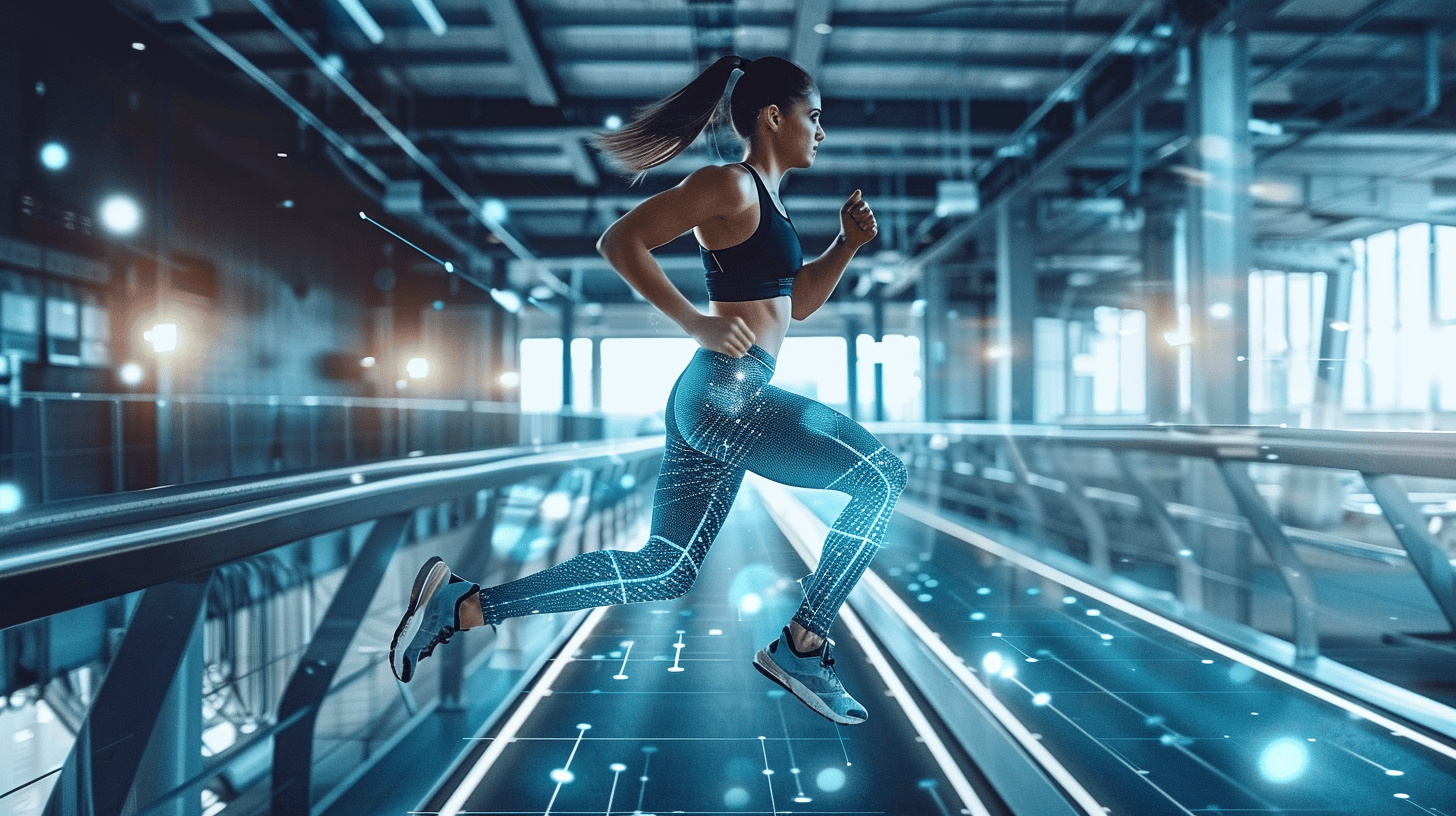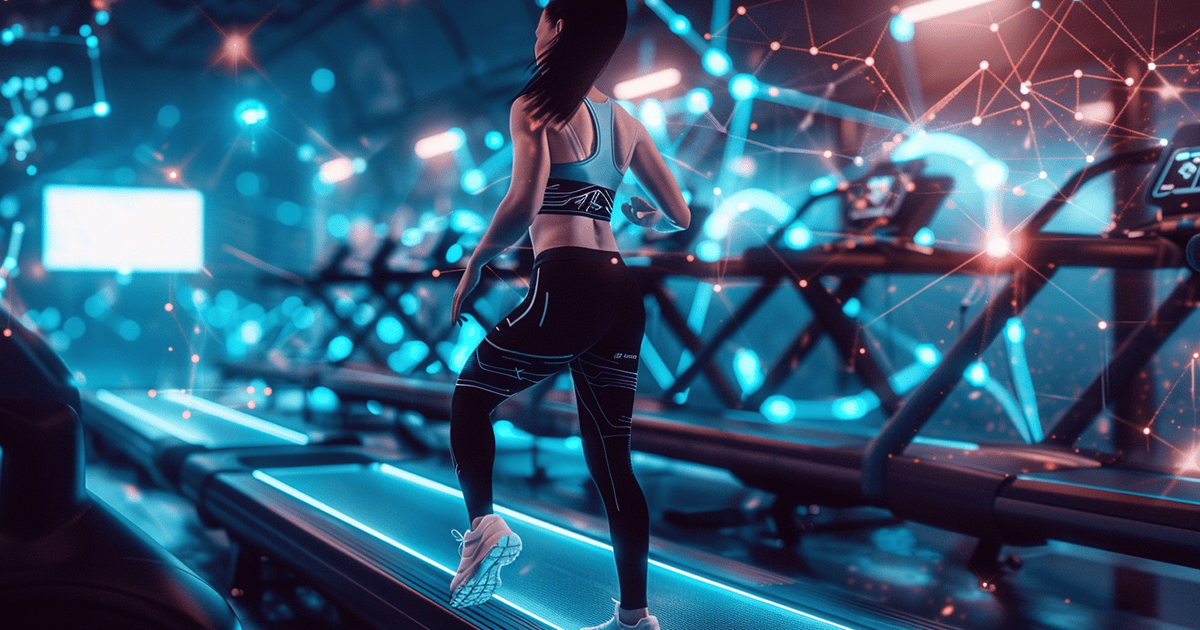Introduction:
In today’s fast-paced world, staying fit is not just a trend; it’s a necessity. As individuals strive to achieve their fitness goals, the integration of technology has become increasingly prevalent. One of the most groundbreaking advancements in this realm is the utilization of Artificial Intelligence (AI) in fitness training. From personalized workout routines to real-time performance tracking, AI is revolutionizing the way we approach fitness.
Personalized Training Plans
Gone are the days of generic workout routines that fail to address individual needs and goals. With AI-powered fitness platforms, users can now access personalized training plans tailored to their specific requirements. By analyzing data such as fitness level, body composition, and exercise preferences, AI algorithms can generate customized workouts that optimize results and minimize the risk of injury.

Real-Time Feedback and Monitoring
AI-equipped fitness devices and applications offer real-time feedback and monitoring capabilities, allowing users to track their progress with precision. Whether it’s monitoring heart rate, counting reps, or analyzing movement patterns, AI algorithms provide invaluable insights into performance metrics. This real-time feedback not only motivates users to push harder but also enables them to make immediate adjustments to their technique for optimal results.
Virtual Coaching and Support
With AI, access to expert coaching and support is no longer limited by geographical constraints or scheduling conflicts. Virtual coaching platforms powered by AI algorithms offer personalized guidance and support, helping users stay accountable and motivated throughout their fitness journey. Whether it’s through interactive chatbots or virtual training sessions, AI-enabled coaching platforms provide invaluable support whenever and wherever it’s needed.
Predictive Analytics for Injury Prevention
One of the most significant advantages of AI in fitness training is its ability to leverage predictive analytics for injury prevention. By analyzing data from wearable devices and motion sensors, AI algorithms can identify potential risk factors and provide actionable insights to prevent injuries before they occur. This proactive approach to injury prevention not only helps users avoid setbacks but also ensures long-term sustainability in their fitness endeavors.
Enhanced Recovery and Rest
Rest and recovery are essential components of any effective fitness regimen, and AI is revolutionizing this aspect as well. By analyzing data such as sleep patterns, heart rate variability, and stress levels, AI algorithms can optimize recovery protocols tailored to individual needs. Whether it’s recommending restorative activities, adjusting training intensity, or scheduling active recovery sessions, AI-powered systems ensure that users achieve the perfect balance between exertion and rest for maximum performance.

The Future of Fitness Training and How AI is Revolutionizing Fitness Training
As AI continues to evolve and integrate with fitness technology, the possibilities for innovation are limitless. From virtual reality-enhanced workouts to biometric feedback systems, the future of fitness training is undoubtedly exciting. By harnessing the power of AI, individuals can unlock their full potential, achieve their fitness goals, and lead healthier, more fulfilling lives.
Conclusion:
In conclusion, AI is revolutionizing fitness training by offering personalized training plans, real-time feedback and monitoring, virtual coaching and support, predictive analytics for injury prevention, and enhanced recovery and rest protocols. As technology continues to advance, the synergy between AI and fitness will undoubtedly lead to groundbreaking advancements in the field. Whether you’re a seasoned athlete or a novice fitness enthusiast, embracing AI-powered fitness training can help you maximize your performance and achieve unparalleled results.
In a world where every step counts, AI is revolutionizing health and fitness training, paving the way for a healthier, more connected future.
